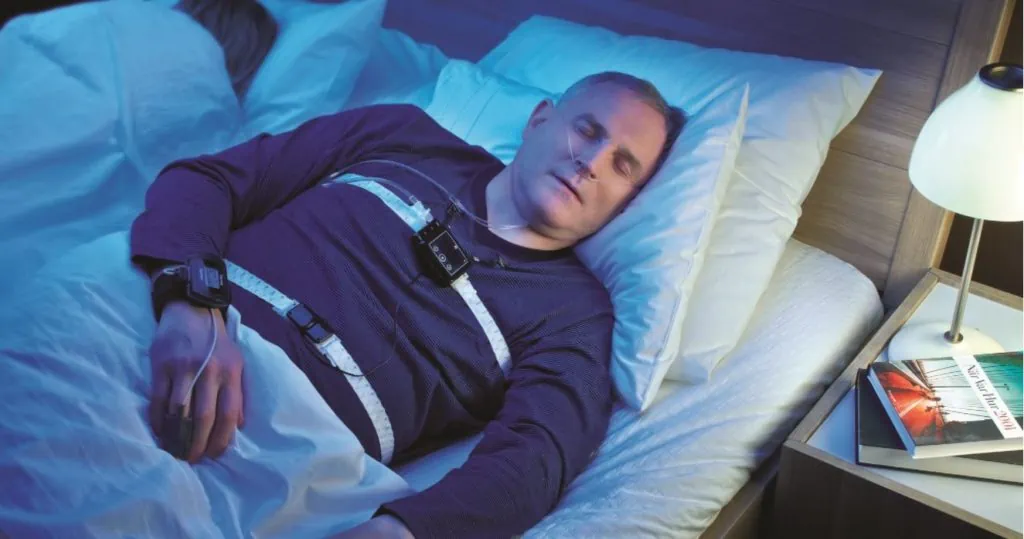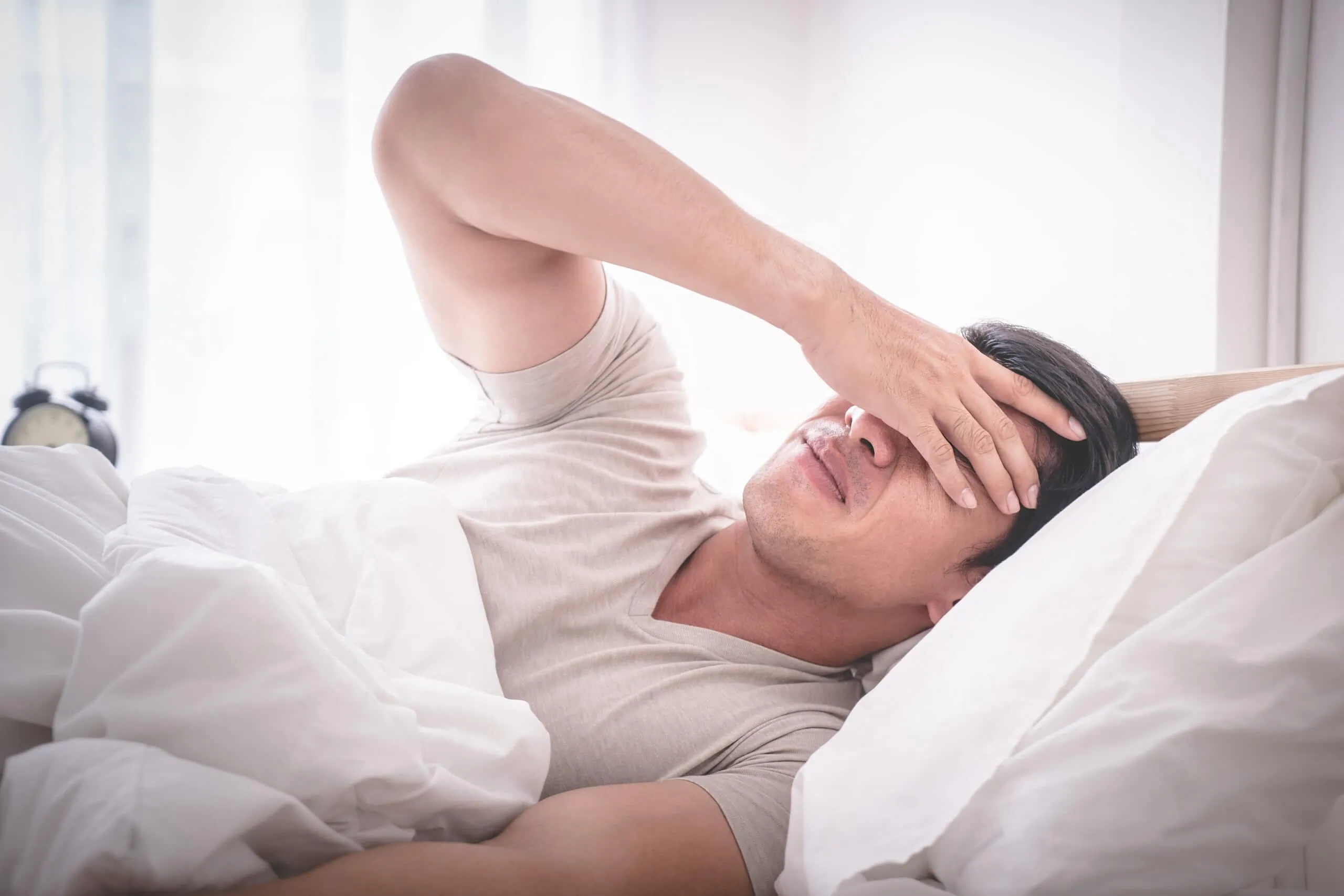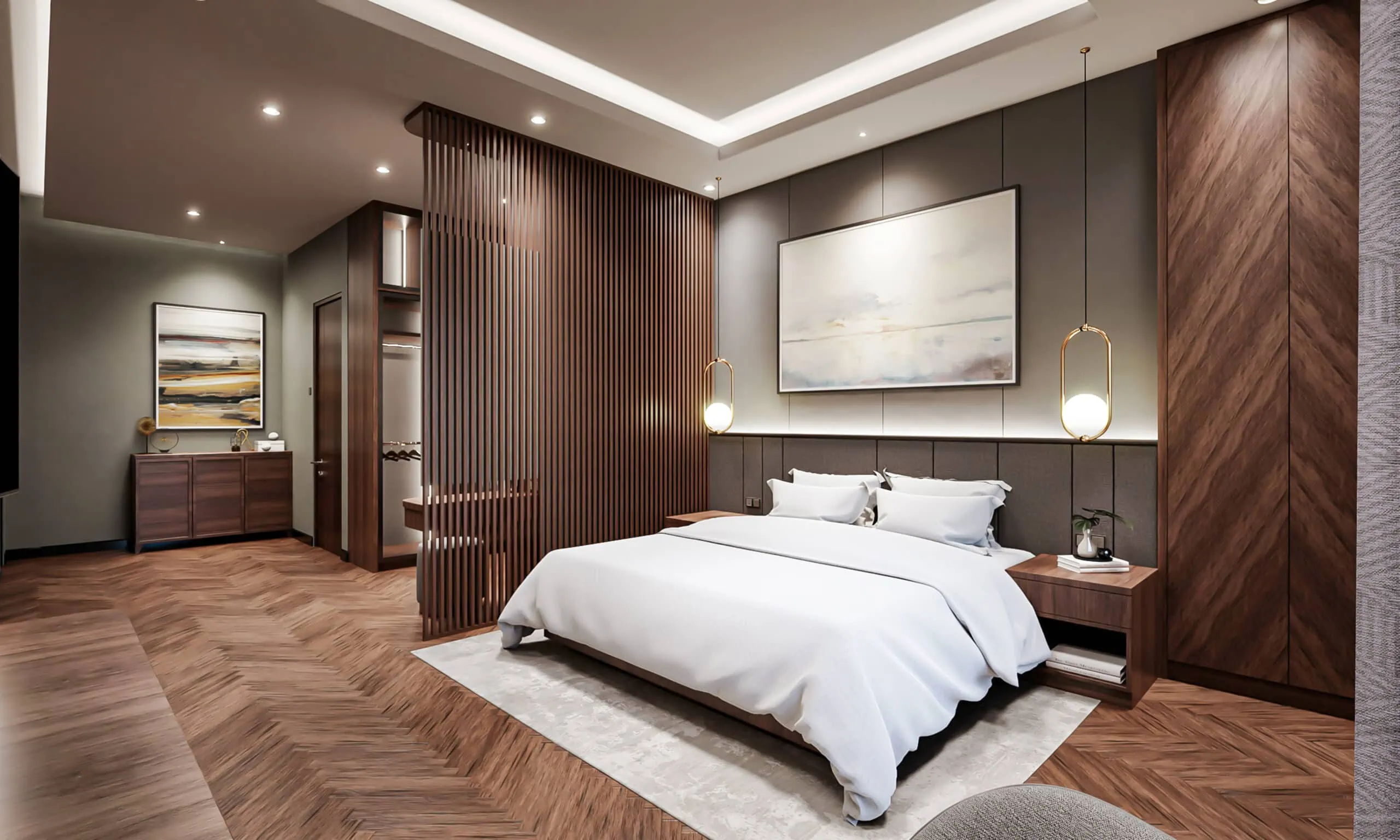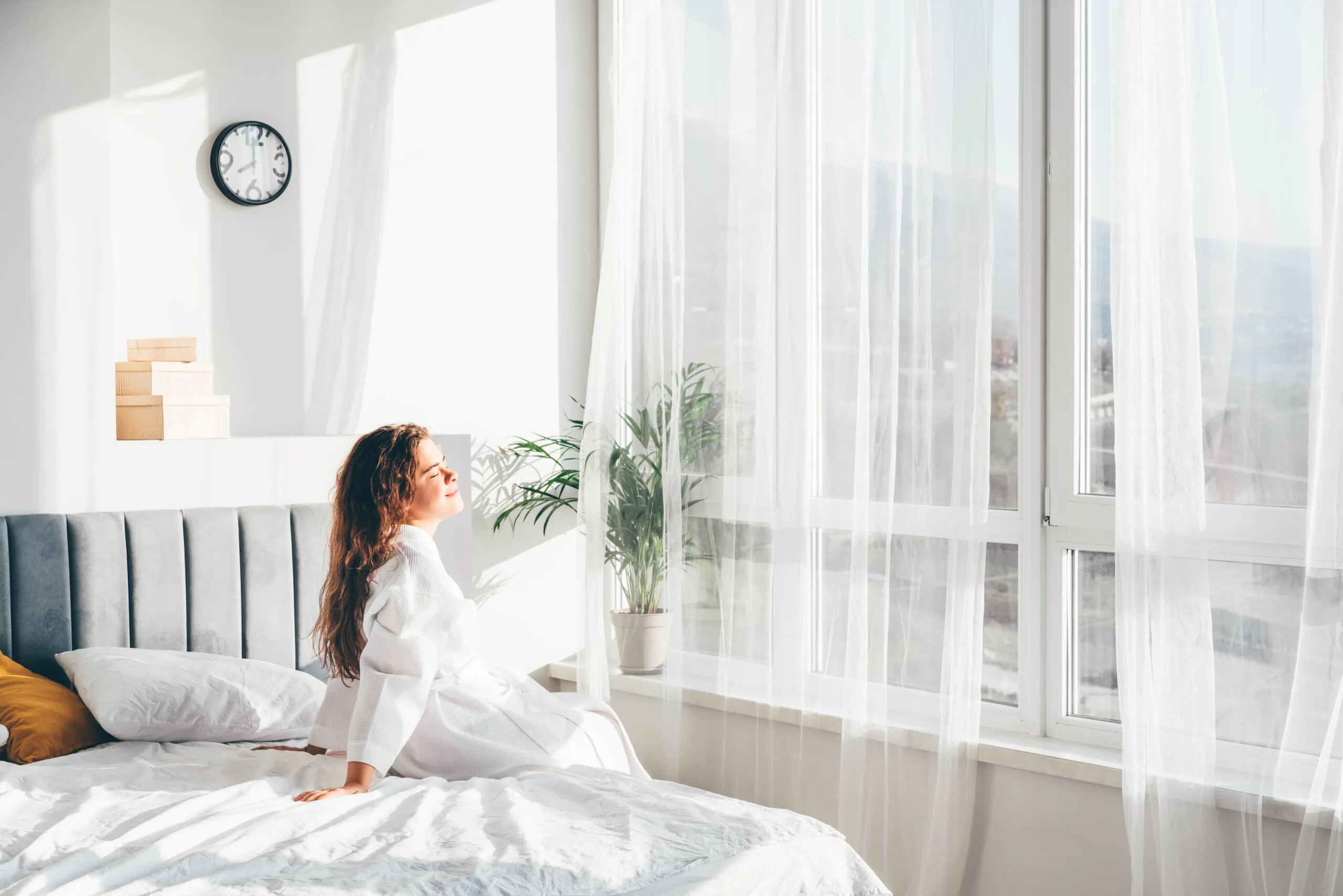Obstructive sleep apnea (OSA), a condition characterized by breathing pauses during sleep, is indeed a potentially dangerous condition and should be treated promptly.
It is recommended to seek immediate medical attention and undergo a proper diagnosis and treatment. One option is to have a Home Sleep Test, which can help in the diagnosis of OSA and guide the appropriate treatment.
It involves using portable monitoring devices that can be used at home to detect any abnormalities during sleep. It may also be helpful to have a close companion observe and report any unusual breathing patterns or symptoms during sleep. Early detection and treatment of sleep apnea can significantly improve overall health and quality of life.
What is Sleep Test?

When should a Sleep Test be conducted?

- Chronic Insomnia: If an individual consistently has difficulty falling asleep, staying asleep, or experiences poor sleep quality that affects daily functioning.
- Excessive Daytime Sleepiness: If an individual feels excessively tired or sleepy during the day, despite getting an adequate amount of sleep at night.
- Snoring: If an individual snores loudly and frequently, especially if it is accompanied by pauses in breathing or gasping for air during sleep.
- Witnessed Sleep Apnea: If a bed partner or family member observes episodes of breathing cessation or abnormal breathing patterns during sleep.
- Restless Leg Syndrome (RLS): If an individual experiences an uncontrollable urge to move their legs, usually accompanied by uncomfortable sensations, which worsen during periods of rest or inactivity.
- Narcolepsy: If an individual experiences excessive daytime sleepiness, sudden and uncontrollable episodes of falling asleep, or loss of muscle control triggered by emotions (cataplexy).
- Shift Work Sleep Disorder: If an individual works irregular or night shifts and experiences difficulty adjusting their sleep schedule or maintaining adequate sleep.
- Parasomnias: If an individual exhibits abnormal behaviors or movements during sleep, such as sleepwalking, sleep talking, or nightmares that cause distress or disruption.
- Sleep-related Movement Disorders: If an individual experiences unusual movements or behaviors during sleep, such as periodic limb movements or rapid eye movement (REM) sleep behavior disorder.
It’s important to consult with a healthcare professional, such as a sleep specialist or primary care physician, who can evaluate symptoms and recommend a Sleep Test if necessary. They will assess the individual’s medical history, conduct a physical examination, and determine the most appropriate course of action for further evaluation and diagnosis.
Benefits of Sleep Testing
Sleep testing, also known as a sleep study, offers several benefits in diagnosing and managing sleep-related disorders. Here are some key advantages of undergoing a Sleep Test:
- Accurate Diagnosis: Sleep testing allows for an accurate diagnosis of various sleep disorders, including sleep apnea, insomnia, narcolepsy, restless leg syndrome, and other conditions. It helps healthcare professionals understand the specific sleep patterns and disturbances occurring during the night.
- Personalized Treatment: By identifying the underlying cause of sleep problems through testing, healthcare providers can develop personalized treatment plans tailored to the individual’s needs. This may involve lifestyle modifications, medication, therapy, or the use of specialized devices like continuous positive airway pressure (CPAP) machines for sleep apnea.
- Improved Sleep Quality: Sleep testing helps individuals achieve better sleep quality by addressing the specific sleep disorder or disturbances. By managing and treating the underlying condition, individuals can experience more restful and rejuvenating sleep, leading to improved overall well-being and daytime functioning.
- Enhanced Daytime Functioning: Identifying and treating sleep disorders through testing can significantly improve daytime functioning. Individuals may experience increased alertness, improved cognitive function, enhanced concentration, and better overall productivity in their daily activities.
- Health and Safety Benefits: Sleep disorders can have significant implications for health and safety. Detecting and managing conditions like sleep apnea can reduce the risk of associated health problems such as cardiovascular disease, hypertension, diabetes, and accidents due to excessive daytime sleepiness.
- Enhanced Quality of Life: By addressing sleep disturbances, individuals can experience an improved quality of life. Better sleep contributes to overall physical and mental well-being, mood regulation, stress reduction, and a greater sense of vitality and happiness.
- Monitoring Treatment Progress: Sleep testing can be used to monitor the effectiveness of treatment interventions. Follow-up sleep studies can assess the response to therapy, ensure the optimal functioning of devices like CPAP machines, and make necessary adjustments to treatment plans.
It’s important to consult with a healthcare professional who specializes in sleep medicine to determine the need for a Sleep Test based on individual symptoms and concerns. They can guide individuals through the testing process and help interpret the results to provide appropriate treatment and support.
Home Sleep Test / โรงแรม Hotel Sleep Test
Home Sleep Test / Hotel Sleep Test vs. Hospital Sleep Test
A Home Sleep Test (HST) or a Hotel Sleep Test (HST conducted in a hotel setting) are alternative options to traditional sleep testing conducted in a hospital or sleep center. Here are the differences between these types of sleep tests:
- Convenience and Comfort: HST and Hotel Sleep Test provide the convenience of conducting the sleep study in the comfort of one’s own home or a hotel room. This eliminates the need for an overnight stay at a hospital or sleep center, allowing individuals to sleep in a familiar environment, which may lead to more accurate results.
- Accessibility: HST and Hotel Sleep Test offer greater accessibility to individuals who may have difficulty accessing specialized sleep centers or hospitals. This is particularly beneficial for individuals who live in remote areas or have limited mobility.
- Simplified Setup: HST and Hotel Sleep Test involve simplified setup compared to sleep tests conducted in hospitals. Individuals are provided with portable sleep monitoring devices that they can easily set up themselves, following simple instructions provided by the sleep clinic or healthcare provider.
- Cost: HST and Hotel Sleep Test are often more cost-effective options compared to sleep tests conducted in hospitals. They typically involve lower fees and reduced expenses related to overnight hospital stays.
- Limited Monitoring Parameters: HST and Hotel Sleep Test may not provide the same level of comprehensive monitoring as hospital sleep tests. While they can assess key parameters like breathing patterns, oxygen levels, and sleep stages, they may not capture additional measurements like brain wave activity (EEG), eye movements (EOG), and muscle activity (EMG).
- Specific Sleep Disorders: HST and Hotel Sleep Test are suitable for diagnosing certain sleep disorders, such as obstructive sleep apnea (OSA). They may not be appropriate for diagnosing complex sleep disorders or those requiring more extensive monitoring and evaluation.
- Professional Interpretation: In both HST and Hotel Sleep Test, the collected data is typically sent to a sleep specialist for interpretation and analysis. The healthcare provider will review the results and provide a diagnosis or recommend further evaluation or treatment options.
It’s important to note that the suitability of a Home Sleep Test or Hotel Sleep Test depends on the specific sleep disorder, individual circumstances, and healthcare provider’s recommendation. Not all individuals may be eligible for these types of tests, and some cases may still require traditional sleep testing in a hospital or sleep center for a comprehensive evaluation.
Advantages of Home Sleep Test / Hotel Sleep Test
Convenience: The primary advantage of a Home Sleep Test or Hotel Sleep Test is the convenience it offers. Individuals can undergo the sleep study in the comfort of their own home or a hotel room, eliminating the need for overnight stays at hospitals or sleep centers. This saves time, reduces travel, and allows for a more relaxed and natural sleep environment.
-
- Cost-Effective: Home Sleep Test and Hotel Sleep Test are generally more cost-effective compared to traditional sleep tests conducted in hospitals or sleep centers. They often have lower fees and eliminate additional expenses associated with hospital stays.
- Accessibility: These tests provide greater accessibility to individuals who may have difficulty accessing specialized sleep centers or hospitals. It is particularly beneficial for those residing in remote areas or facing mobility challenges.
- Real-World Sleep Patterns: Conducting the sleep test at home or in a hotel allows for the evaluation of real-world sleep patterns. It provides a more accurate representation of an individual’s typical sleep habits and behaviors, which can lead to more reliable diagnostic results.
- Comfortable Environment: Being in a familiar and comfortable environment during the sleep test can promote better sleep quality. It reduces potential disruptions and anxiety that might occur in an unfamiliar hospital setting.
- Simplified Setup: Home Sleep Test and Hotel Sleep Test involve simplified setup procedures. The sleep monitoring devices provided are user-friendly, and individuals can follow the provided instructions to set them up easily. This reduces the need for technical assistance and streamlines the process.
- Privacy: Some individuals may prefer the privacy and discretion offered by home-based or hotel-based sleep tests. It allows for increased confidentiality and minimizes any concerns related to sharing sleeping spaces in a hospital or sleep center.
- Convenience for High-Risk Individuals: Home Sleep Test or Hotel Sleep Test is particularly beneficial for individuals with underlying health conditions or mobility limitations, as it eliminates the need for travel and overnight stays at medical facilities.
Preparation for Home Sleep Test / Hotel Sleep Test
- Take a clean shower before the sleep test and avoid using hair spray or styling products.
- Avoid daytime napping if it’s not part of your regular routine.
- Five hours before the test, drink less water and have your dinner completed.
- Refrain from consuming alcohol 24 hours before the test.
- Avoid tea, coffee, carbonated drinks, and stimulants for at least 12 hours before the test.
- If you are on any medication, consult with your doctor to determine if any adjustments need to be made before the test.
- Men should shave their facial hair prior to the test, while women should avoid wearing makeup and applying nail polish.

Other health screening programs include:
- Basic Health Check-up Program
- Test for Thyroid Function
- Vitamin and Antioxidant Screening
- Cancer Screening Program
Contact Siam Clinic Phuket
- Contact us at Siam Clinic 1st Floor, Big C Phuket
- map:https://g.page/SiamClinicPhuket
- Telephone : 088-488-6718 and 093-692-5999
- Email :[email protected]
- Facebook inbox :https://m.me/siamclinicthailand
- Instagram :https://www.instagram.com/siamclinic
- Line@ : @siamclinic or addhttps://lin.ee/uny1D7n
- Youtube :Siam Clinic Siam Clinic Phuket Beauty Clinic – YouTube



